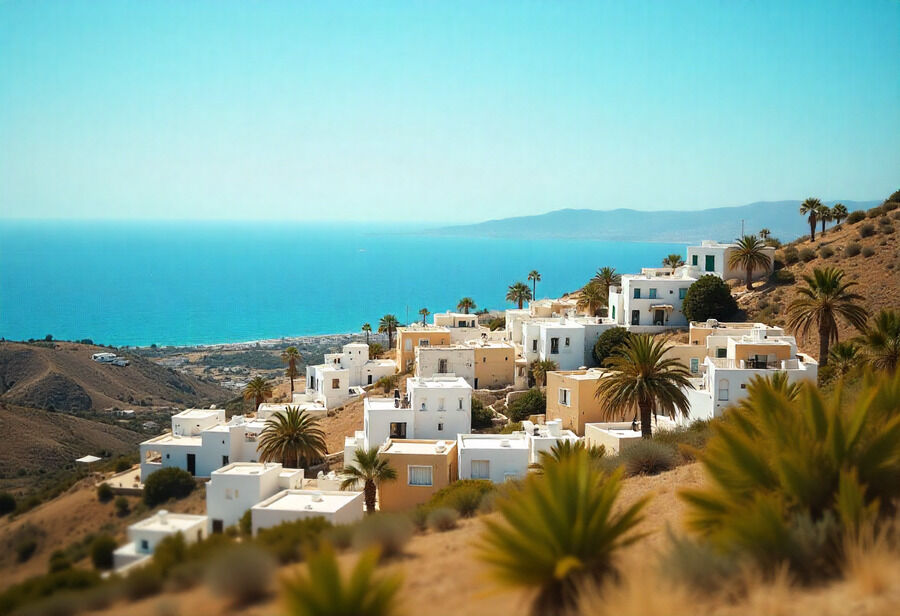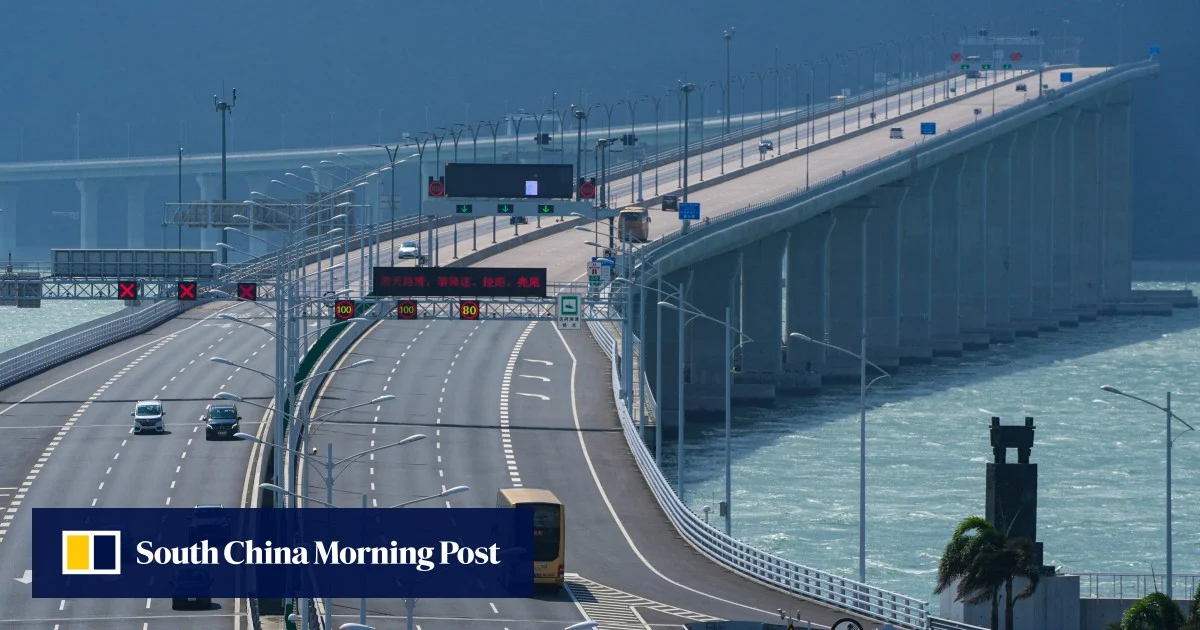Published on
August 19, 2025
UK has joined Australia in issuing a comprehensive travel advisory for Tunisia due to significant security concerns, particularly in areas bordering Algeria and Libya. Both governments have warned their citizens against traveling to certain high-risk regions in Tunisia, citing ongoing terrorist activity, cross-border violence, and the threat of kidnapping in these areas. The advisory highlights the escalating risks from military operations, terrorism, and civil unrest, urging travelers to exercise extreme caution and reconsider visits to several key zones.
In recent weeks, both the United Kingdom (UK) and Australia have updated their travel advisories for Tunisia, highlighting concerns over security risks stemming from terrorism, civil unrest, and instability in certain regions of the country. Travelers to Tunisia are being urged to exercise heightened caution, especially in areas near the borders with Algeria and Libya. While Tunisia remains a popular tourist destination, these advisories underscore the growing security challenges in specific regions.
UK Foreign, Commonwealth & Development Office (FCDO) Travel Advisory for Tunisia
The UK government has issued a travel advisory for Tunisia that includes warnings about terrorism and military activity in certain regions. The UK FCDO has outlined specific areas where travel is either advised against or restricted due to the risk of terrorism, kidnapping, and civil unrest.
Areas Where FCDO Advises Against Travel
- Western Tunisia: The FCDO advises against all travel to Western Tunisia, particularly the Tunisia-Algeria border area. This includes regions like the Chaambi Mountains National Park, and the designated military operations zones, such as Mount Salloum, Mount Sammamma, and Mount Mghila, which are known hotspots for cross-border terrorist activities and ongoing operations by Tunisian security forces.
- Kasserine Governorate: This area, including Sbeitla, is categorized as high-risk due to the presence of extremist groups and the threat of terrorist attacks. The FCDO also advises against all but essential travel within 20km of these areas.
- Southern Tunisia: Specific warnings include areas near the Tunisia-Libya border, including El Borma and Dhehiba, due to cross-border terrorism and unstable security conditions arising from the Libyan conflict. The militarised zone south of El Borma and Dhehiba is also off-limits.
- Mount Orbata: The area around Mount Orbata is considered highly volatile due to security operations and limited access for travelers. It is advised that only essential travel should occur in this region.
- General Travel Advisory: The FCDO further recommends that travelers be cautious when approaching any 20km zone around the Algeria and Libya borders due to terrorism risks. Travelers are also advised to avoid large gatherings and protests, which are common in Tunisia and can quickly escalate into violence.
Travel Insurance and Additional Precautions
The FCDO highlights that travel insurance might be invalidated if travelers choose to visit regions where the government advises against travel. Travelers planning to go to Tunisia are advised to secure appropriate travel insurance that covers terrorism, civil unrest, and emergency evacuation if needed.
Australia’s Travel Advisory for Tunisia
Similarly, Australia travel advisory for Tunisia also emphasizes the need for caution due to the threat of terrorism, kidnapping, and instability in certain regions. The Australian government has updated its travel advice, particularly focusing on the threat of terrorism and the volatility of the border regions with Algeria and Libya.
Areas with High Risk According to Australian Authorities
- Southern Tunisia and Border Areas: Australia advises its citizens to exercise a high degree of caution when traveling in Tunisia overall. Higher levels of caution apply in regions near the Algerian border and Libyan border. Areas such as the Governorate of Kasserine, Mount Chaambi, Mount Sammama, and Mount Mghila are considered high-risk zones due to the presence of terrorist activity and military operations.
- Border Areas and Kidnapping Risks: Australia specifically advises against all travel within 20km of the Algerian border, except for the P7 highway and a few towns such as Ain Draham and Tabarka. The 30km radius of the Libyan border is also considered dangerous due to the risks posed by kidnapping and terrorist activity.
- Military Zones and Remote Areas: Australia’s advisory includes warnings about military zones around Remada and El Borma. These areas have a history of military presence and occasional skirmishes due to regional instability. Travelers are urged to avoid these areas unless absolutely necessary.
Civil Unrest and Safety Concerns
In addition to the terrorism risks, Australia’s advisory highlights the ongoing civil unrest in Tunisia. Protests, strikes, and demonstrations can occur throughout the country with little warning. These events have a tendency to escalate quickly into violent confrontations, particularly in larger cities or areas of national significance. Australia advises travelers to avoid large gatherings and demonstrations, particularly near political events or national holidays.
Safety and Security Tips for Travelers
Both the UK and Australia’s travel advisories stress the importance of staying vigilant when traveling to Tunisia. Some practical steps include:
- Stay Informed: Travelers are urged to regularly check local news and security updates. Both governments recommend staying in contact with local embassies and consulates for the latest security information.
- Avoid High-Risk Areas: It’s crucial to follow the advice of local authorities and avoid areas flagged as high-risk, such as military zones, areas near the Algerian and Libyan borders, and regions with high terrorist activity.
- Travel Insurance: Secure travel insurance that covers incidents related to terrorism, kidnapping, and civil unrest. Travelers should be aware that many insurance companies may not cover incidents occurring in regions under travel advisories.
- Be Prepared for Protests: Stay clear of protests or large crowds, and avoid areas of unrest. Demonstrations in Tunisia can quickly turn violent, and it’s always safer to maintain a low profile during such events.
The Impact of the Travel Advisories on Tunisia’s Tourism Industry
Both the UK and Australia’s advisories reflect growing concerns over security in Tunisia, which has had a negative impact on tourism in recent years. Historically, Tunisia has been a popular destination for European tourists due to its beaches, ancient ruins, and vibrant culture. However, terrorist attacks targeting tourists, such as the 2015 attack at the Bardo Museum and Sousse beach resort, have resulted in a significant drop in tourism.
Although many coastal regions, such as Hammamet and Djerba, remain relatively safe, the risks in southern and western Tunisia have made these areas less attractive for international visitors. The ongoing military operations and security concerns along the borders have exacerbated the situation, making it more challenging for the country’s tourism sector to recover.
Both the UK and Australia have issued detailed travel advisories for Tunisia, urging travelers to exercise caution and reconsider travel to certain high-risk areas. The risk of terrorism, kidnapping, and civil unrest in Tunisia’s border regions, particularly near Algeria and Libya, has prompted both governments to update their security advice. While coastal areas and some cities remain safe for tourists, the volatile security situation in other parts of the country continues to pose significant risks.
UK has joined Australia in issuing a travel advisory for Tunisia due to increasing risks from terrorism, cross-border violence, and ongoing military operations, particularly near the Algeria and Libya borders. Both governments warn travelers to exercise caution and avoid high-risk areas.
Travelers planning to visit Tunisia are encouraged to stay informed, avoid high-risk zones, and ensure that they have appropriate travel insurance. By following the guidance provided by both the UK and Australia, visitors can help ensure a safer and more secure travel experience.



